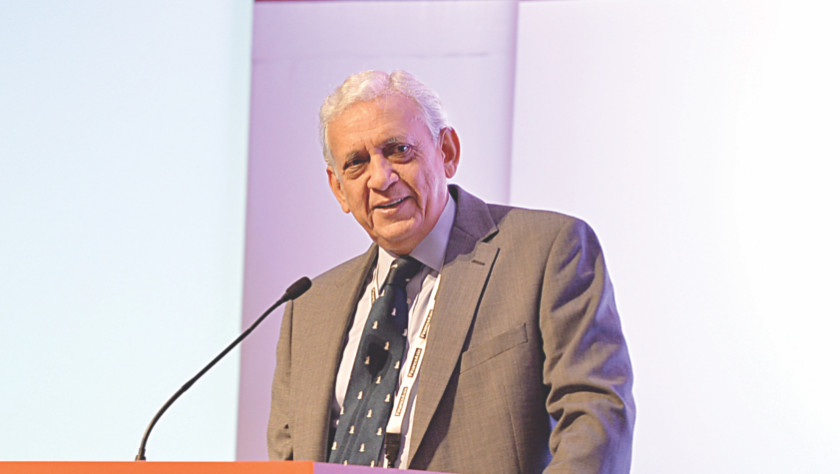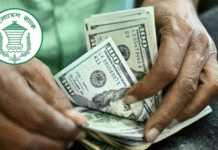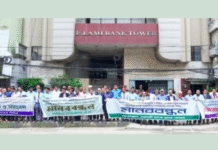Bangladesh is ready to turn the corner for good and foreign investors could do well for themselves by hopping on the bandwagon now — this was the unequivocal message from the third Bangladesh Investment Summit, Asia.
“We are getting ready for take-off. The wheels have started moving,” Gowher Rizvi, international affairs adviser to the prime minister, said in his keynote speech at the daylong event held at The St. Regis Singapore.
His bullish stance, after all, is not unfounded.
Last month, the Asian Development Bank upgraded Bangladesh’s growth forecasts for fiscal 2015-16 — while downgrading those of the rest of Asia Pacific save for Fiji and Vietnam.
The Manila-based multilateral lender tipped Bangladesh’s gross domestic product to grow at 6.7 percent this fiscal year, up from its March prediction of 6.4 percent.
“These are conservative estimates,” said Sohail RK Hussain, managing director of City Bank.
Rizvi echoed the same. The country has averaged 6 percent in GDP growth over the last 15 years, which, he said, is a nice, satisfactory story but nowhere reflective of the true potential.
Abrar A Anwar, CEO of Standard Chartered Bangladesh, said the country is at the inflection point and if appropriate level of investment can be channelled to the critical sectors, the potential can be realised.
“Double-digit growth is within our reach. At the risk of being called hasty and an adventurer, I am going to say that it will come sooner than many of us are anticipating,” Rizvi said.
One of the reasons for the optimism is that Bangladesh has clocked in impressive social development, the bedrock for economic progress.
Its performance in this avenue is much better than any country with comparable level of income.
In the region of South Asia itself, Bangladesh is now well ahead of Nepal and Pakistan, and in many areas, have gone ahead of India and Sri Lanka, according to the prime minister’s adviser.
“A society that is so broadly based, growing and remaining stable is the place you want to go to,” he told a room packed with interested investors.
Over the course of the day, 252 delegates from 191 companies called in to familiarise themselves with the remarkable Bangladesh story.
The City Bank MD also brought to the investors’ attention the “vibrant” private sector and the population of 160 million.
“This means there is more money in people’s hands, a larger domestic market,” he said, while highlighting the demographic advantage.
Of the total population, more than 50 percent are in the working age bracket, the median age of which is 24-30 years, according to Hussain.
It is an asset that needs to be harnessed, Anwar said.
Subsequently, there are ample opportunities for investors in labour-intensive industries such as readymade garments, household textiles, leather processing, agro products, food and beverages and so on, Hussain said.
Rizvi said all the elements that investors look for are present in Bangladesh.
“The fundamentals are right. Your investment is safe. The returns proportionate to risks are very attractive. There is macroeconomic stability along with policy continuity and predictability.”
Furthermore, the country is providing a host of incentives by way of fiscal concessions, tax holidays and so on, which, if not better, are on a par with other countries, he said.
The SCB CEO said the opportunities for investment in the country far outweigh the current challenges.
At the end of the day, investments need to make sense and investors look forward to a decent return, security of their investments and ability to repatriate dividend and capital when required.
“We have been able to do that, and I am sure, all of you who are contemplating investment in Bangladesh would also be able to do that in due course.”
Pal Stette, director of project and corporate finance of Telenor, Grameenphone’s parent company, shared the Norwegian telecom giant’s experience of investing in Bangladesh.
In less than two decades, Grameenphone has logged in turnover of more than $1 billion and is producing very good margins, with EBITDA (earnings before interest, taxes, depreciation and amortisation) in excess of 50 percent.
In short, it is one of the star performers of Telenor’s portfolio.
It took Grameenphone six years to get its first million subscribers and six months for the next million, Stette said to demonstrate the rising appetite and means of the country’s consumer market.
Bangladesh is a country where honey is not pouring from the sky but it is growing from the ground, said Mahfuz Anam, editor and publisher of The Daily Star.
“Today, I can stand in front of you confidently and say that we will not disappoint you,” Rizvi said as he wrapped up the event.











